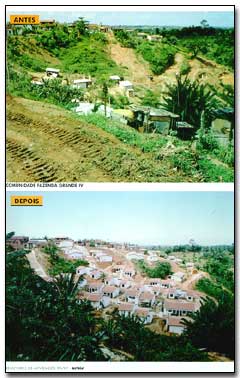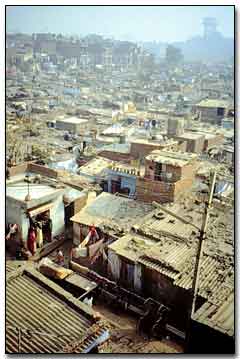Why were only a few projects city-wide or national in scope?
National programs of upgrading require active political will and an ability to deal with thorny problems such as land regulations, land ownership, changes in zoning or planning standards, and policies and institutions governing housing and infrastructure provision. Also, government turnover, lack of knowledge about what can be done among local officials, lack of voice on the part of slum dwellers, lack of consistent advise and support from the donor community have all been factors that affected scaling up. Frankly, few projects were designed in the first place to be scaled up. Despite this, most bilateral and multilateral institutions have very good experience with individual slum upgrading projects. The time is right for the international community to move from adhoc, piecemeal, pilot programs often with conflicting policies, to a coordinated approach where we help countries to develop their own long term plan which we all support.
Countries as diverse as Jordan, Tunisia and Indonesia have successfully implemented nationwide programs. Programs of significant scale are underway in Ghana, Venezuela, Brazil, India, Morocco and the Philippines. |

Lima, Peru.
Some squatters anticipate upgrading
allowing rapid large-scale improvement. |

Faienda Grande, Brazil.
Successful scaling-up experience is found in Brazil. |
What are the fundamentals for scaling up?
• Vigorous leadership and political will.
• Reversing slum eradication and “urban renewal” policies.
• Strengthened government and voluntary institutions operating in tandem with clear policies, assigned roles, and cooperation.
• Well managed, fiscally sound and organized city governments.
• Central commitment, role, ownership and responsibility and participation of the slum residents and community in the full process of upgrading.
• Provision of an appropriate “package” of affordable basic services that substantially improve the living conditions of the community.
• A systematized capturing and sharing of knowledge on slum upgrading.
|
What are the issues in scaling up?
Moving from pilot slum upgrading projects to citywide and nationwide scales of action will require tackling the following critical development issues head on:
• Good Governance – the capacity of local governments must be strengthened to carry out their responsibility for the equitable provision of infrastructure and services to all urban residents while planning for future growth; and, the capacity of provincial, state and national authorities must be strengthened to ensure their critical normative roles, to establish facilitating policy environments, and to rid corruption from land markets and the provision of public services.
• Legal System – property rights and security of tenure are critical to sustainable approaches to upgrading. The vast majority of the residents of urban slums live without any form of secure tenure, often under constant threat of eviction, vitiating their ability to access credit and constraining their motivation to improve their homes and neighborhoods.
• Financial System – coupled with security of tenure, access to credit is key to unleashing the vast potential of the urban poor to improve their living and working environments and livelihoods. Micro-credit and other facilities to expand access to credit to the poor can provide critical elements of institutional support in creating financially self-supporting and sustainable urban upgrading programs.
• Social Framework – community participation in the conception, development, financing, and upgrading of infrastructure and services is a critical element of sustainable programs. Experience has shown that the most successful programs address community priorities.
|



